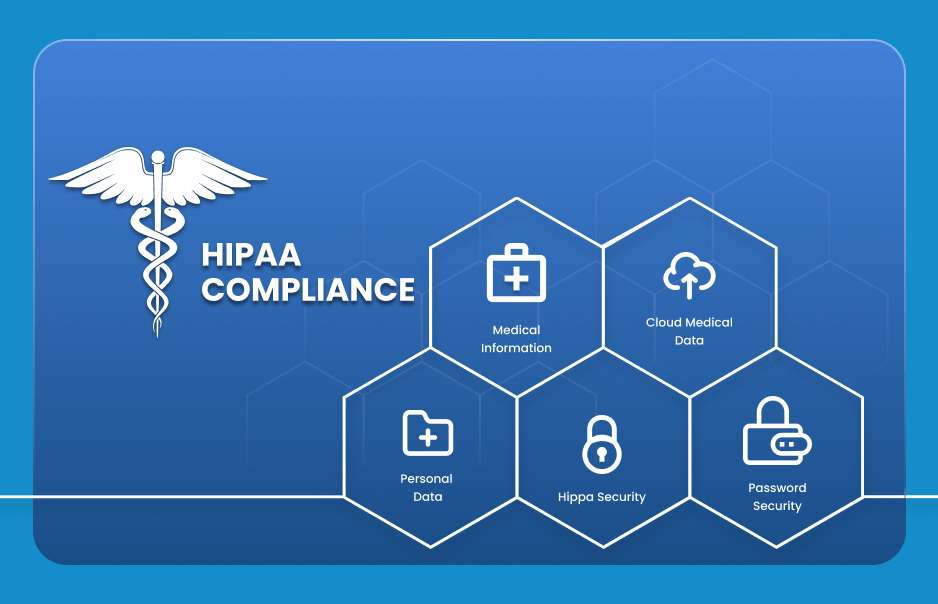
15 Best HIPAA Compliance Software & GRC Tools for SMBs
15 Best HIPAA Compliance Software and GRC Tools for SMBs (2025)
For Small and Medium-sized Businesses (SMBs) in the healthcare sector, or any organization handling Protected Health Information (PHI), achieving and maintaining HIPAA compliance is not just a legal obligation but a cornerstone of patient trust and operational integrity. While the regulatory landscape can seem daunting, a growing number of specialized software solutions and GRC (Governance, Risk, and Compliance) tools are designed to streamline the process, making it manageable and affordable for SMBs.
These platforms automate critical tasks, centralize documentation, and provide ongoing monitoring to ensure continuous HIPAA readiness, allowing SMBs to focus on patient care without getting bogged down in manual compliance efforts.
Healthcare Compliance Software and Breach Prevention and Detection

Here are 15 of the best HIPAA compliance software and GRC tools for SMBs in 2025:
1. Risk Cognizance
Strength for SMBs: Risk Cognizance is an integrated GRC platform known for its AI-powered automation and modular approach, making it highly scalable and cost-effective for SMBs. It offers a comprehensive suite of tools that extends beyond basic compliance to include risk management, vendor risk, and continuous monitoring, allowing SMBs to build a robust and integrated security posture. Its flexibility means you can start with essential HIPAA compliance and expand as your needs grow.
Key HIPAA Features:
- AI Policy Linker & Risk Syncer: Automates mapping controls to HIPAA requirements and identifies related risks.
- Automated Evidence Collection: Integrates with your existing systems (cloud, identity, HR) to automatically pull evidence for HIPAA audits (Privacy, Security, Breach Notification Rules).
- Continuous Monitoring: Real-time oversight of PHI access, system activity, and control effectiveness, alerting to deviations.
- HIPAA-Specific Risk Assessments: Guides SMBs through identifying, analyzing, and mitigating risks to ePHI.
- Centralized Policy & Procedure Management: Stores and manages all HIPAA-required policies (e.g., privacy, security, breach notification, data retention), with automated attestation tracking.
- Business Associate Agreement (BAA) Management: Tracks and manages BAAs, ensuring compliance with third-party vendors handling PHI.
- Incident Response & Breach Notification: Tools to detect, respond to, and report breaches in accordance with HIPAA's Breach Notification Rule.
- Audit Trail & Reporting: Provides detailed logs of system activity and generates audit-ready reports.
- Employee Training & Awareness: Offers modules or tracking for mandatory HIPAA security and privacy training.
- Scalability: Its modular design makes it ideal for SMBs to start small and add features as they mature.

Other Top 15 HIPAA Compliance Software & GRC for SMBs
2. Compliancy Group
Strength for SMBs: A HIPAA-first compliance suite designed specifically for small to mid-sized practices. Compliancy Group emphasizes guided workflows and coaching, making it very accessible for teams without dedicated compliance personnel.
Key HIPAA Features: HIPAA program manager, guided workflows, coaching, policy development, privacy and breach evaluations, audit preparation and support, role-based training modules.
3. Vanta
Strength for SMBs: Widely adopted by startups and fast-growing SMBs, Vanta offers a user-friendly interface and extensive integrations for automating compliance frameworks, including HIPAA. It's known for quick readiness.
Key HIPAA Features: Automated security checks, continuous system monitoring, pre-built policy templates, easy integration with cloud tools for evidence collection, automated risk assessments.
4. Drata
Strength for SMBs: A strong competitor to Vanta, Drata also excels in continuous control monitoring and automated evidence collection, offering an intuitive design that streamlines HIPAA compliance for SMBs scaling quickly.
Key HIPAA Features: Continuous control monitoring, automated evidence collection, pre-mapped HIPAA controls, built-in HIPAA training, real-time security reports, robust integrations.
5. Secureframe
Strength for SMBs: Offers a comprehensive compliance automation solution for SMBs, focusing on accelerating compliance timelines and providing robust features for policy management and system monitoring for various frameworks, including HIPAA.
Key HIPAA Features: End-to-end compliance lifecycle management, automated risk assessments, policy templates, continuous cloud monitoring, vendor due diligence.
6. Hyperproof
Strength for SMBs: A versatile GRC platform that supports multiple frameworks, including HIPAA. Hyperproof is great for SMBs that need to manage various compliance needs from a centralized platform, with strong automation for evidence collection.
Key HIPAA Features: Centralized compliance tracking, automated reminders, evidence collection, policy and control mapping, multi-framework support.
7. Sprinto
Strength for SMBs: A compliance automation platform that helps healthcare organizations stay on top of HIPAA with an all-in-one toolkit. Well-suited for tech-forward healthcare startups and digital health vendors.
Key HIPAA Features: Compliance automation platform, all-in-one HIPAA toolkit, security monitoring, documentation automation, policy development.
8. HIPAA One
Strength for SMBs: Specializes in risk assessments, offering automated Security Risk Analysis (SRA) and remediation tracking. Ideal for multi-location organizations or those prioritizing robust risk management.
Key HIPAA Features: Automated SRA, remediation tracking, policy and procedure management, employee training, incident response.
9. HIPAA E-Tool
Strength for SMBs: A browser-based compliance tool with customizable templates and resources, suitable for independent providers and smaller businesses looking for a straightforward approach.
Key HIPAA Features: Customizable templates, policy management, training tools, business associate agreement management, audit preparation.
10. CompliAssure (formerly HIPAAtrek)
Strength for SMBs: Focuses on being a centralized HIPAA program manager, offering a system for policies, training, and overall compliance management, which is helpful for organizations without dedicated compliance staff.
Key HIPAA Features: Centralized policy management, training system, risk assessment, incident tracking, audit support.
11. EPI Compliance
Strength for SMBs: Geared towards small to mid-sized healthcare providers, offering a bundled solution for HIPAA, OSHA, and Medicare compliance tasks.
Key HIPAA Features: Business Associate Center, automated reminders and task lists, audit readiness support, policy library, online training.
12. MedStack
Strength for SMBs: A compliance infrastructure platform tailored for digital health companies, providing a compliant cloud environment along with policy templates. Ideal for healthcare startups building new solutions.
Key HIPAA Features: Compliant cloud infrastructure, out-of-the-box HIPAA controls, privacy policies, automated security measures, detailed audit reports.
13. TrustCloud (formerly TrustOps)
Strength for SMBs: Offers automated healthcare compliance automation, simplifying HIPAA and SOC 2 for startups and small businesses in healthcare. Provides free HIPAA compliance automation for eligible startups.
Key HIPAA Features: Automated policy creation, AI-powered security questionnaire responses, centralized dashboards, integrated communication tools, continuous monitoring.
14. StandardFusion
Strength for SMBs: A versatile GRC software that helps SMBs manage multiple frameworks including HIPAA. It provides visibility, centralization, and collaboration features for compliance.
Key HIPAA Features: Multi-framework support, centralized repository for controls and documentation, risk management, vendor tracking, policy management.
15. ZenGRC (by RiskOptics)
Strength for SMBs: A cloud-based GRC platform that is user-friendly and can be a good option for SMBs, offering robust features at a potentially lower total cost of ownership compared to some enterprise-grade platforms.
Key HIPAA Features: Centralized control mapping, automated workflows, risk management, audit management, reporting for various frameworks including HIPAA.
_1747653647.png)
Key Features to Look for in HIPAA Compliance Software for SMBs:
When selecting a HIPAA compliance solution, SMBs should prioritize tools that offer:
- Automated Evidence Collection: Reduces manual effort and ensures continuous audit readiness.
- Risk Assessment & Management: Tools to identify, assess, and mitigate risks to ePHI.
- Policy and Procedure Management: Centralized repository for creating, managing, and distributing required policies.
- Employee Training & Attestation: Essential for ensuring workforce awareness and compliance.
- Business Associate Agreement (BAA) Management: Critical for managing third-party risks.
- Incident Response & Breach Management: Workflows to handle security incidents and breaches per HIPAA rules.
- Continuous Monitoring: Real-time insights into your compliance posture.
- Reporting & Audit Trails: Ability to generate audit-ready reports and track all compliance activities.
- Scalability: The ability to grow with your organization's needs.
- User-Friendly Interface: Easy to navigate for teams without deep compliance expertise.
- Affordable Pricing: Solutions tailored to SMB budgets.
Choosing the right HIPAA compliance software or GRC tool can transform a complex regulatory burden into a streamlined and manageable process, allowing SMBs to maintain compliance, protect patient data, and build trust in the competitive healthcare landscape.



